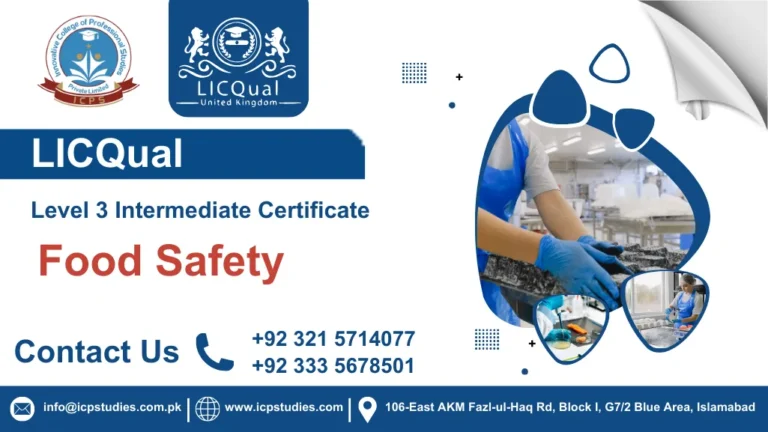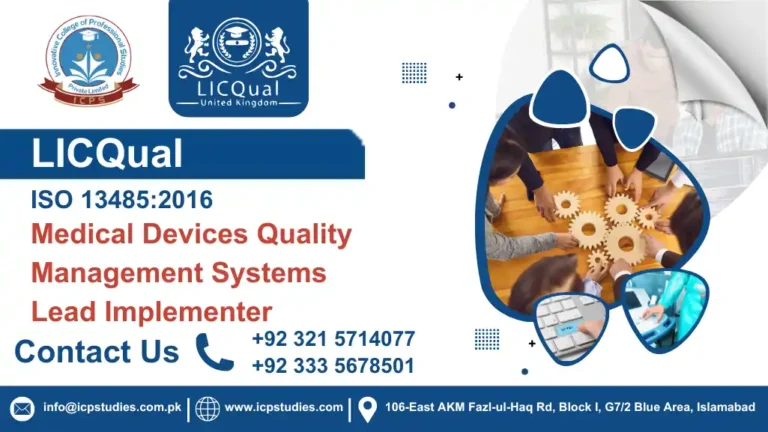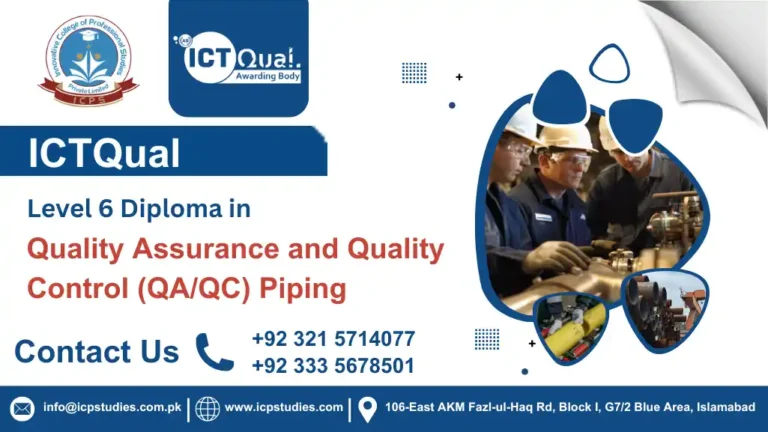The LICQual Level 6 Diploma in Mechanical Quality Control and Quality Assurance (QC/QA) is an advanced-level qualification designed to enhance the skills and knowledge of professionals working in the mechanical engineering sector. This course focuses on providing learners with the expertise needed to implement effective quality control and assurance strategies in mechanical systems and processes. With an emphasis on industry standards, risk management, and continuous improvement, the diploma prepares students for leadership roles in mechanical quality management.
The LICQual Level 6 Diploma in Mechanical QC/QA combines theoretical knowledge with practical skills, providing learners with the tools necessary to oversee quality assurance and control processes across various mechanical engineering disciplines. This course covers fundamental principles, methodologies, and advanced techniques to ensure mechanical products and processes meet the highest standards. By the end of the course, learners will be equipped to manage and improve quality systems in mechanical manufacturing, maintenance, and production environments.
The LICQual Level 6 Diploma in Mechanical Quality Control and Quality Assurance is the perfect choice for professionals in the mechanical engineering sector who want to specialize in quality management. With a comprehensive curriculum covering everything from quality planning to leadership in quality assurance, this diploma will equip you with the knowledge and skills to excel in the industry and progress in your career. Whether you’re aiming for a leadership role, expanding your technical expertise, or looking to improve quality systems in mechanical projects, this diploma will provide you with the tools needed to succeed.
All About LICQual level 6 Diploma in Mechanical Quality Control and Quality Assurance QC QA
Course Overview
The LICQual Level 6 Diploma in Mechanical Quality Control and Quality Assurance (QC/QA) is an advanced qualification designed to provide mechanical engineering professionals with the essential skills and knowledge needed to manage and implement quality control and assurance systems. This course is specifically tailored for individuals seeking to enhance their expertise in mechanical manufacturing, production processes, and maintenance.
As industries and technology continue to evolve, maintaining high-quality standards and ensuring compliance with international regulations is more critical than ever. This diploma prepares professionals to meet these challenges by offering a deep dive into key areas such as quality planning, testing methods, process optimization, risk management, and leadership in quality assurance.
Upon completing this course, learners will have the ability to develop and manage comprehensive quality systems, conduct inspections and tests, ensure compliance with industry standards, and lead teams toward continuous improvement in mechanical quality. Whether you’re already in a quality control role or aspire to move into leadership positions, this diploma provides the knowledge and tools required to take your career to the next level.
Study Units
- Unit 1: Advanced Quality Management Systems in Electrical Engineering
Unit 2: International Standards and Regulatory Compliance for Electrical Systems
Unit 3: Electrical Testing, Inspection, and Performance Evaluation
Unit 4: Risk Management and Safety in Electrical Quality Control
Unit 5: Root Cause Analysis (RCA) and Corrective Actions in Electrical Systems
Unit 6: Performance Monitoring and Continuous Improvement in Electrical Systems
To enroll in the LICQual Level 6 Diploma in Mechanical Quality Control and Quality Assurance (QC/QA), applicants must meet the following entry requirements:
- Educational Qualifications:
- A Level 5 qualification in Mechanical Engineering, Quality Control, or a related field is preferred. This could include a diploma or degree in mechanical engineering, manufacturing, or quality management.
- Alternatively, applicants with significant practical experience in the mechanical engineering industry and a strong understanding of quality control and assurance may be considered.
- Professional Experience:
- A minimum of 2 years of work experience in mechanical engineering, manufacturing, or quality management is typically required. This experience should demonstrate familiarity with mechanical systems, processes, and quality assurance practices.
- Language Proficiency:
- Proficiency in English is required, as the course materials, assessments, and communications will be conducted in English. Applicants whose first language is not English may need to provide proof of English proficiency through an accepted test (e.g., IELTS or TOEFL).
- Basic Technical Knowledge:
- A fundamental understanding of mechanical engineering principles, as well as basic knowledge of quality control and assurance methodologies, is essential. Familiarity with common mechanical inspection and testing tools is also beneficial.
- Commitment to Learning:
- The course requires dedication and self-motivation, as it includes both theoretical learning and practical assessments. Applicants should be prepared to invest time in independent study, research, and project work.
If you meet these entry requirements and are committed to advancing your career in mechanical quality control and assurance, this diploma will provide you with the expertise to take on leadership roles in the field.
The LICQual Level 6 Diploma in Mechanical Quality Control and Quality Assurance (QC/QA) is ideal for professionals who wish to advance their career in the mechanical engineering, manufacturing, and quality management industries. Specifically, this course is designed for:
- Quality Control Professionals:
- Individuals working in or aspiring to work in quality control positions in mechanical engineering, manufacturing, or production environments who want to deepen their expertise in quality assurance processes and standards.
- Mechanical Engineers:
- Mechanical engineers who wish to specialize in quality management systems and enhance their understanding of QC/QA principles to take on leadership or managerial roles.
- Manufacturing Managers and Supervisors:
- Those responsible for overseeing production processes and ensuring quality standards are met, who want to develop stronger skills in quality planning, risk management, and continuous improvement strategies.
- Inspectors and Test Engineers:
- Professionals involved in mechanical inspections, testing, and audits, looking to improve their ability to identify issues and ensure compliance with international standards.
- Aspiring Quality Assurance Leaders:
- Individuals aiming for leadership or managerial positions in quality assurance, who wish to lead teams, improve processes, and ensure the highest standards of quality in mechanical operations.
- Industry Professionals Looking to Transition to Quality Management:
- Those from other engineering or technical backgrounds looking to transition into mechanical quality control and assurance roles, seeking a structured approach to understanding and implementing QC/QA practices.
This course is perfect for those who want to enhance their qualifications and play a key role in maintaining high-quality standards, improving mechanical processes, and ensuring compliance in the mechanical engineering industry.
Learning Outcomes
By the end of this course, learners will be able to:
Unit 1: Advanced Quality Management Systems in Electrical Engineering
- Comprehend the principles and components of advanced Quality Management Systems (QMS) in electrical engineering.
- Evaluate the role of QMS in ensuring compliance with industry standards and regulations.
- Design and implement quality control measures within electrical engineering projects to enhance system performance and reliability.
- Assess the effectiveness of various QMS frameworks (e.g., ISO 9001) in the context of electrical engineering.
- Apply tools and techniques to monitor and improve quality standards across electrical systems and processes.
Unit 2: International Standards and Regulatory Compliance for Electrical Systems
- Understand international standards governing electrical systems (e.g., IEC, ISO) and their global impact.
- Analyze regulatory requirements for electrical systems across different regions and industries.
- Demonstrate knowledge of the compliance processes for electrical systems with relevant national and international standards.
- Evaluate the consequences of non-compliance on safety, performance, and operational efficiency.
- Apply regulatory guidelines to ensure electrical systems comply with safety, environmental, and technical standards.
Unit 3: Electrical Testing, Inspection, and Performance Evaluation
- Understand the key principles of electrical testing and inspection methods for electrical systems and components.
- Apply various testing methods (e.g., functional, performance, and diagnostic testing) to evaluate electrical systems.
- Analyze test results and assess system performance in accordance with international standards.
- Implement appropriate inspection techniques to ensure safety, quality, and reliability in electrical systems.
- Identify performance issues in electrical systems through systematic testing and propose corrective solutions.
Unit 4: Risk Management and Safety in Electrical Quality Control
- Understand the principles of risk management in electrical systems, including hazard identification and risk assessment.
- Analyze potential safety risks within electrical systems and recommend effective mitigation strategies.
- Apply risk management frameworks (e.g., FMEA, Fault Tree Analysis) to assess safety and quality in electrical engineering projects.
- Evaluate the effectiveness of safety protocols and standards in managing risks within electrical systems.
- Implement safety measures to reduce risks and enhance safety outcomes in electrical quality control processes.
Unit 5: Root Cause Analysis (RCA) and Corrective Actions in Electrical Systems
- Understand the principles and methodology of Root Cause Analysis (RCA) in electrical systems.
- Apply various RCA techniques (e.g., Fishbone Diagram, 5 Whys) to identify the root causes of electrical system failures or inefficiencies.
- Evaluate the impact of identified root causes on system performance and safety.
- Design corrective actions based on RCA findings to address electrical system issues and prevent recurrence.
- Monitor the implementation of corrective actions to ensure continuous improvement in electrical systems.
Unit 6: Performance Monitoring and Continuous Improvement in Electrical Systems
- Understand the principles of performance monitoring and continuous improvement in electrical systems.
- Apply performance metrics and indicators to assess the efficiency and effectiveness of electrical systems.
- Evaluate the use of monitoring tools and techniques (e.g., SCADA, data logging) to track system performance.
- Design strategies for continuous improvement to optimize the performance of electrical systems.
- Assess the impact of continuous improvement initiatives on the reliability, efficiency, and sustainability of electrical systems.
FAQs about LICQual level 6 Diploma in Mechanical Quality Control and Quality Assurance QC QA







